Andrew Langford has been practising the art of hands-on learning since his early days in manufacturing, and then in his first solo enterprise as a shoemaker. He came to formal university education a bit late, and perhaps that’s why he was able to look at it more objectively than his younger counterparts. It was while taking a diplomate in management studies and a master’s degree in Organization Design that he discovered how “distant and irrelevant formal education can sometimes be from the world of projects and work.”
So it’s no surprise that the university that he would go on to found with his now-life partner, Liora Adler, takes a markedly different approach. Gaia University has been described as ‘a revolution disguised as a university’, and it purports to equip changemakers with the skills needed to design a better world. Some of the teachings and learnings of Gaia University over the years are compiled in his new book, “EcoSocial Design: Using Leadership and Enterprise in Service to Regenerative Living.”
The Esperanza Project caught up with Andrew and Liora at their winter home in Morelos, Mexico, in the iconic ecovillage Huehuecoyotl (co-founded by Liora). Here he shares some thoughts about ecosocial design, regenerative livelihoods, and dismantling the Patrix.
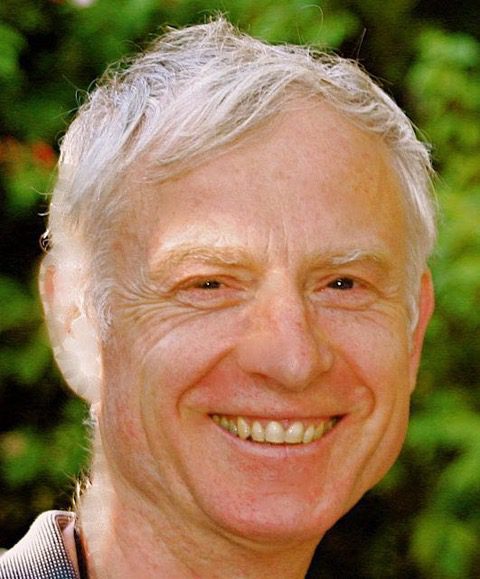
Andrew Langford, cofounder of Gaia University, founder of the Permaculture Association of the UK and author of EcoSocial Design: Using Leadership and Enterprise in Service to Regenerative Living
(Courtesy: Gaia University)
Esperanza Project: What is EcoSocial Design, exactly, and how can people build these principles into their livelihoods?
Andrew: My background is in workshop-scale shoe-making and permaculture. This encourages me to think that fostering a plethora of small scale, ethical enterprises intent on enabling action for the regeneration of ecosystems is key to surfing the increasing chaos. That’s eco and social.
Large organizations just do not have the agility required and are often more focused on remaining in business even when their activities are appallingly destructive. Their dependents, our brothers and sisters who work for these drivers of the destructoculture, may even fight to keep them alive when we’d be better off slipping them under a mulch somewhere to decompose. Small ethical enterprises come and go much more easily and with agility too so can adapt to the millions of niches of opportunity coming up in the regenerative economy. Of course this means deconstructing large scale organizations – banks, tech companies, big pharma and so on. That’s also eco and social and is where ecosocial thinking drives political thinking.
Esperanza: You speak a lot about “regenerative livelihoods,” and that’s a major focus of Gaia University. What do you mean by that?
Andrew: A regenerative livelihood is one that has each of us making a living whilst regenerating an ecosystem or, perhaps, reorganizing our societies so that other people are free to do that work. These days I am extreme enough to propose that, unless your means of making a living actively supports the regeneration of ecosystems you should find a new livelihood.
Esperanza: You write in your dedication that we are at the beginnings of “the long emergency” of climate chaos, and that “major disruption” is certain.” What type of future do you anticipate the current class of university students will inherit, and how do you think this book will help?
Andrew: I am
aligned with the thinking of Business Professor Jem
Bendell, Founder of the Institute for
Leadership and Sustainability at the University of Cumbria in the UK, who
has returned to his undergraduate roots in climate science for another hard
look and who concludes that collapse of our cultures is inevitable. Any hopes
that we can avert collapse is blind optimism although we can, if we get to it,
slow the pace of this immensely threatening change.
He proposes that we dispose of all unnecessary and damaging features of our
current cultures and retain only those that have genuine meaning and those that
contribute to the slowing of climate change. Meanwhile, he suggests we send in
the ninja task forces to seal up the nuclear power stations so as to reduce the
acute risk of massive radioactive spills as rising sea levels inundate the
storage ponds.
A deep adaptation program like this is bound to be
transformative, action oriented and will demand thorough unlearning of,
especially, all the patrix effects that distort our current cultures.
Standing on the shoulders of the many who have gone before we coined the term
‘transformative action un/learning’ to describe the Gaia U approach and it is
our hope that students who internalize this process will zestfully rise to the exceptional
challenges (identified by Joanna Macy)
of hospicing the old and midwifing the new that are required if the collapse is
to be as conscious, kindly and fair as possible.
Esperanza: What do you mean by “the Patrix,” and what does it have to do with EcoSocial design?
Andrew: The Patrix is our shorthand for all the intersecting oppressions that make up the (patriarchal) matrix of domination. It includes the class system, racism, sexism and many more tangled threads. These are all artificial means by which we are held fearful of and separate from each other. The Patrix is a most dangerous phenomenon that comes about when our sensitive human psyches are damaged, sometimes deliberately, often by contagion across multiple generations and less often by accident.
We are all carriers of Patrix memes and consequently they are continually reproduced until such times we actively seek to eliminate them. These memes clog up our mental arteries meaning that most of us are unable to field a full set of intelligences. Right now that’s a critical issue.
We train as a community of Patrix busters in Gaia U and this is our principle field of unlearning.
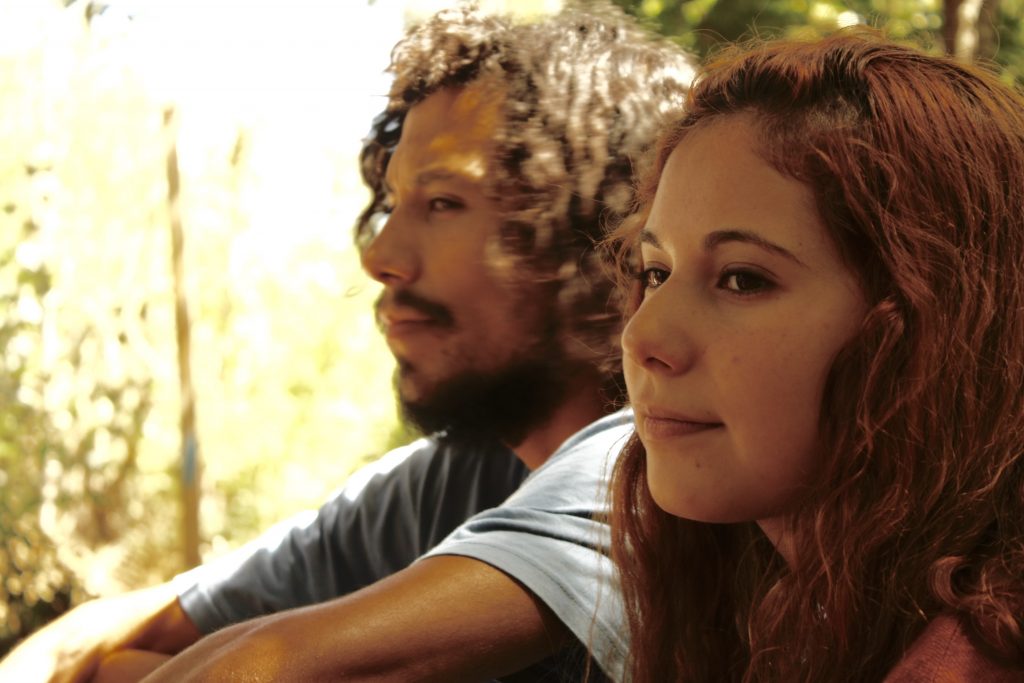
Esperanza: What have been some of the biggest challenges of creating and administering a university geared toward training people around the globe for regenerative livelihoods?
Andrew: Access to assets. It takes access to all manner of assets to generate a new economy, and it is hard to draw those in, especially land and financial assets given that our current cultures are so badly skewed in terms of the distribution of these. We need to always be conscious of the land grabbing impulse that underlies mainstream capitalism and be ready to counter that awful tendency that has dispossessed us in our millions over the ages and continues to do so today.
Besides access to land, working capital is also in short supply and we need to use all manner of income solidarity, capital pooling approaches, complementary currencies and more to fix up that issue. We’d do well to work for a Universal Asset Distribution setup that gives people the capital buffer that enables them to take the time away from attending to mere survival in order to reeducate themselves in the ecosocially regenerative paradigm.
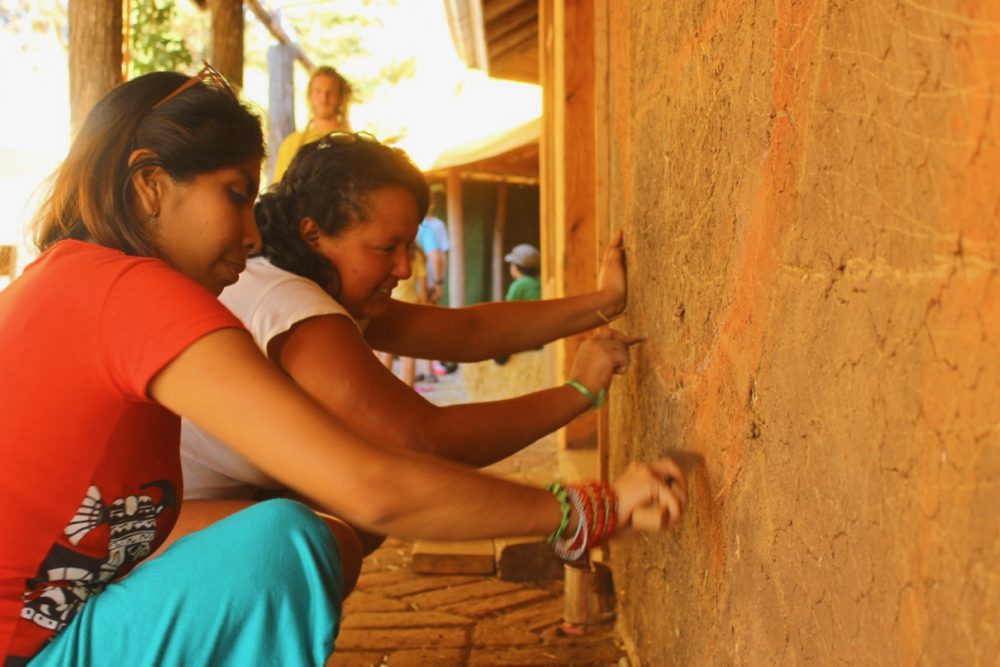
Another issue is permission.
Many of us want our existing cultures to endorse our efforts. Efforts that
would dismantle them. However it shouldn’t take too much looking to notice that
a hallmark of the current cultures (mostly white, male, capitalist) is that
they think of themselves as the apex of human civilization and, as such, they
only need a little tweaking to be perfect so no fundamental change is
necessary.
That’s not the view we take in Gaia U, as you can probably tell. We are working
for nothing less than a Patrix-free, inclusive, ecosocially regenerative future
— and that means we’ll need to prune out all manner of diseased and twisted
existing cultural branches, especially those that block the light out from the
middle of the tree.
And we need to rapidly unlearn those patterns that constrain us to only doing what we have permission for.
Esperanza: You wrote that “Gaia U is home to the thoughtful artisan, the ethical shop-keeper, the ecological campesino, the holistic practitioner, the open-source manufacturer, the permaculture designer and other disruptors who often come from the so-called ’lower middle class’. We are more conjoined in spirit with our sisters and brothers of the working class than the elites of the coordinator and owning classes.” Assuming that this book targets the same population, why are you aiming at these sorts of readers, as opposed to more traditional thought and opinion leaders?
Andrew: Those who you describe as the traditional thought and opinion leaders have had the last 10 millennia to demonstrate their competence and fitness for purpose. I am not impressed – it is time for them to step aside and leave the democratic space open to those of us who will be doing the work of ecosystem and social system regeneration. We have a much better idea of what needs to happen and we can mobilize millions of people to get it done. All we need is access to the resources.
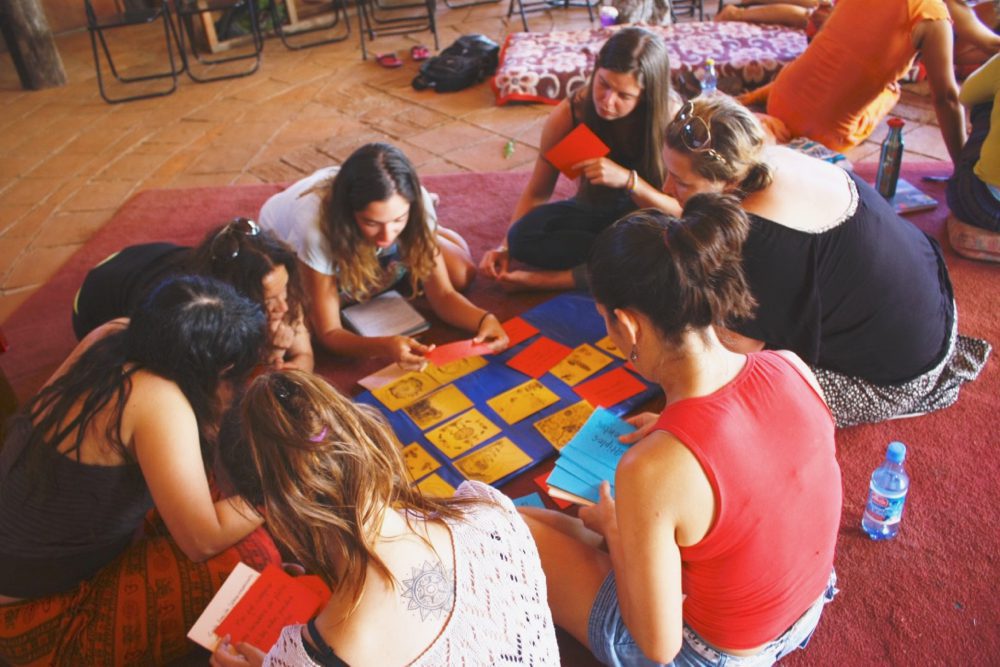
Esperanza: You are making this nearly 400-page book – the work of various decades of serious scholarship and hard-earned wisdom – available to the public for a sliding-scale price beginning at zero. Why did you decide to do that, and how is it working?
Andrew: This does seem counter-intuitive, no? We did think hard about this and, frankly, it is the least effort way of making the thinking available. Least effort for most effect is a principle we like to work by. Now that the book has been out at www.leanpub.com/esd for a few months we can see that it is a good strategy – folks can pay what they can afford, absorb the content and, later, come well prepared to join our Gaia U un/learning community where they can access the collective intelligence and social support needed to navigate the turbulent transitions coming up.
Esperanza: What would you like to see as some of the principle takeaways of this book?
Andrew: Please just take it (that’s why we offer it for free), read it, reflect on what it says, come join us at Gaia U when you are ready (but soon please, this is no time to be hanging about) …
Andrew Langford is cofounder of Gaia University, founder of the Permaculture Association of the UK and author of EcoSocial Design: Using Leadership and Enterprise in Service to Regenerative Living.
Find out more about Gaia University and their alternative education offerings by visiting their site here, or Gaia U Latina Here.
Get your copy of EcoSocial Design right now from Leanpub.
Listen to Andrew’s webinar on Climate Change and the Patrix on Gaia U Radio.
Follow Gaia U on Facebook, Instagram and Twitter for updates and more EcoSocial thinking.
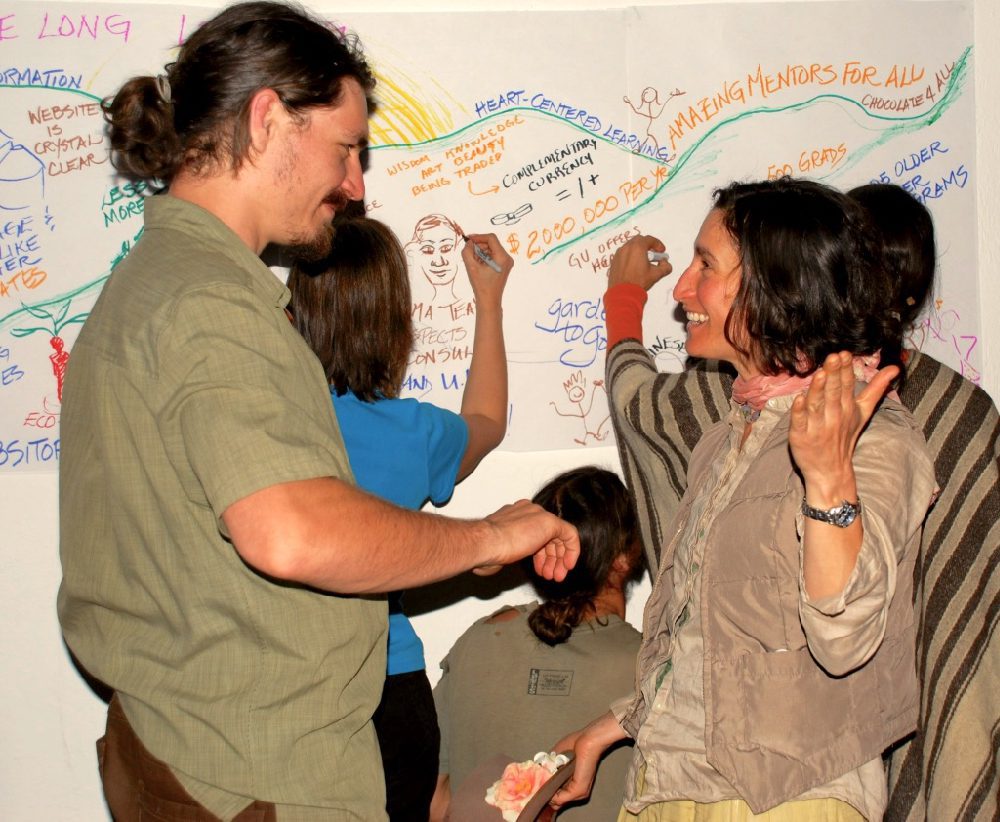

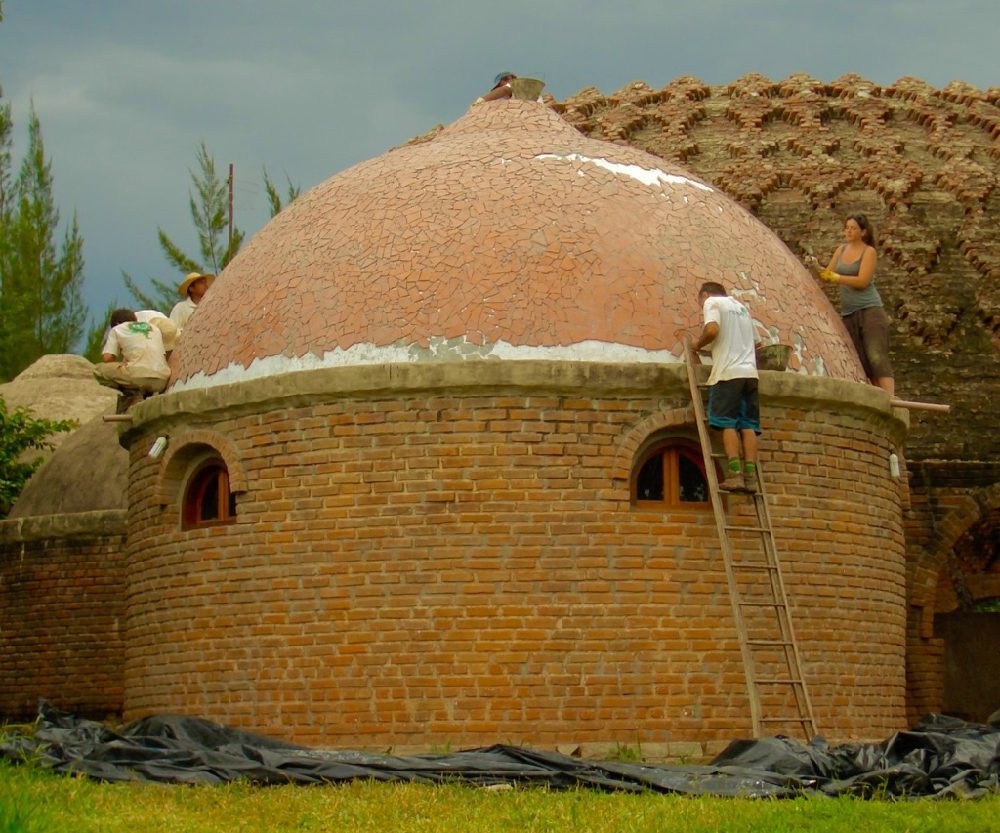
- Dismantling the Patrix with EcoSocial Design - April 3, 2019
Andrew Langford EcoSocial Design Gaia University Regenerative Enterprise Regenerative Livelihoods
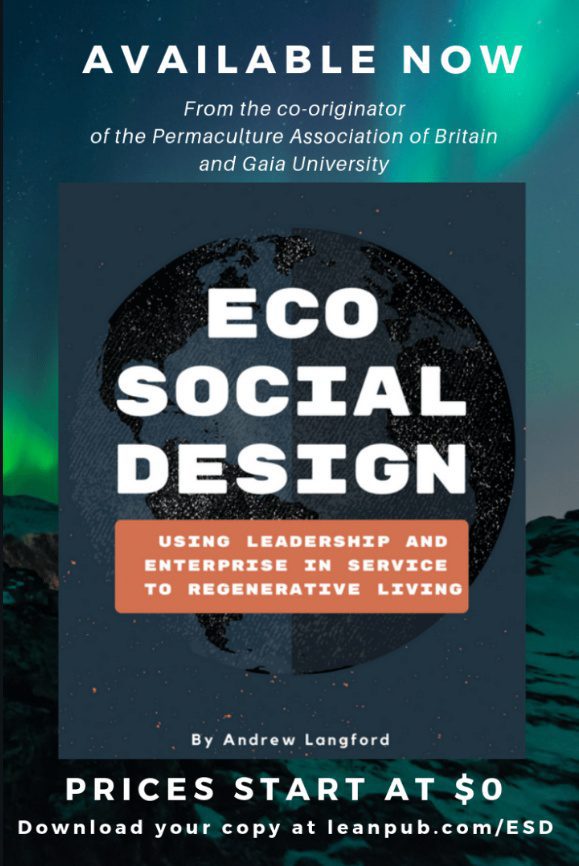
Great stuff, Andy.
Having known you all those years ago when I was at Dartington College I never appreciated how you would develop into such an influential person. Wow